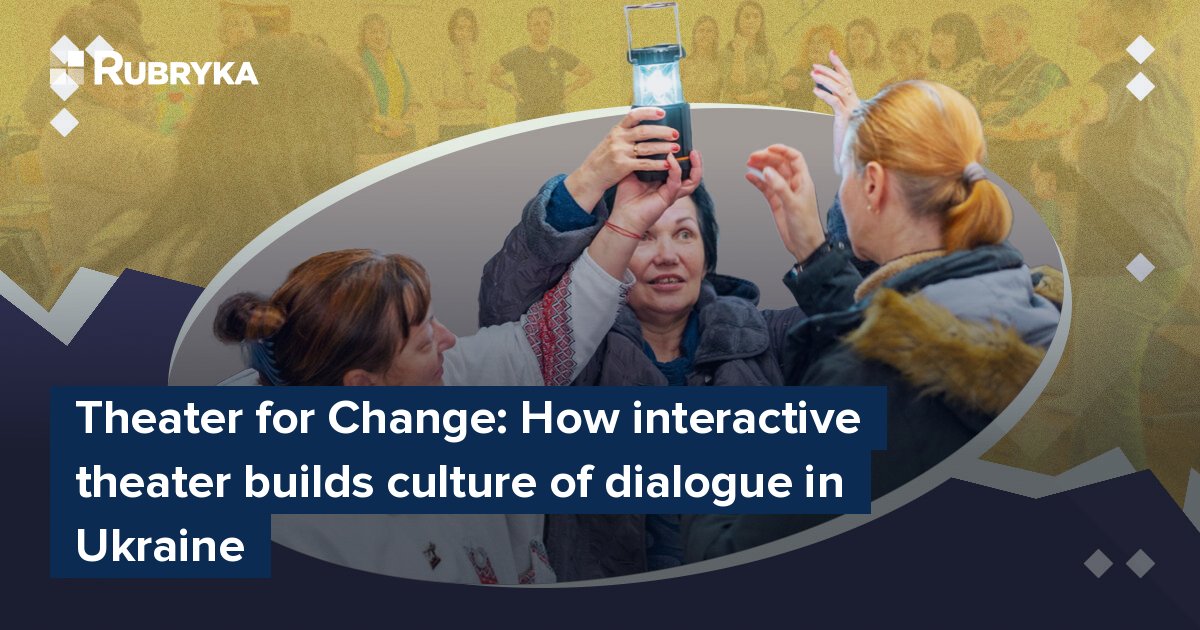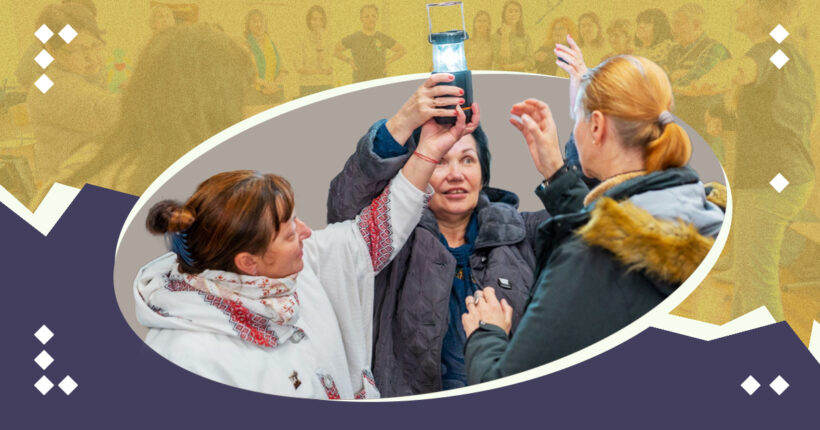
What's the problem?
Russia's full-scale invasion of Ukraine has not only deepened but also exposed many of the challenges Ukrainian society faces. From integrating internally displaced people and helping veterans transition back into civilian life to dealing with grief and loss — these are just a few of the struggles communities are navigating today.
Take, for example, a report by the International Organization for Migration presented in November 2024. It found that among working-age displaced people, unemployment rates are higher than those who haven't been displaced. Meanwhile, the Danish Refugee Council reports that displaced people face serious difficulties finding stable and affordable housing, fueling anxiety and uncertainty in their daily lives.
Veterans, too, are returning to a society that isn't always ready to support them. Ukraine already had 1.3 million veterans by July last year, according to Deputy Minister for Veterans Affairs Ruslan Prykhodko. A survey by the Rating Sociological Group shows that Ukrainians believe returning veterans may struggle with mental instability, a lack of inclusive spaces, and health issues. Meanwhile, those who have lost loved ones to war or whose relatives are missing face grief — often in a society that doesn't always know how to respond to their pain.
These problems — and many others — demand government action, but at their core, they are also about how society perceives and interacts with different social groups. Sometimes, we need to shift social attitudes and encourage understanding to solve these issues. Meaningful dialogue is fundamental here.
What's the solution?
Since 2019, the nonprofit organization Theater for Change has been working to spark these conversations and encourage critical reflection and nonviolent social change in Ukrainian communities. This organization promotes the method of the Theater of the Oppressed in Ukraine.
The Theater of the Oppressed is a concept developed in the 1960s by Brazilian director Augusto Boal. Yana Salakhova, leader of Theater for Change, describes it as a socially engaged form of art designed to improve society. Through theater, it helps communities create change, probe into pressing social issues, and find potential solutions.
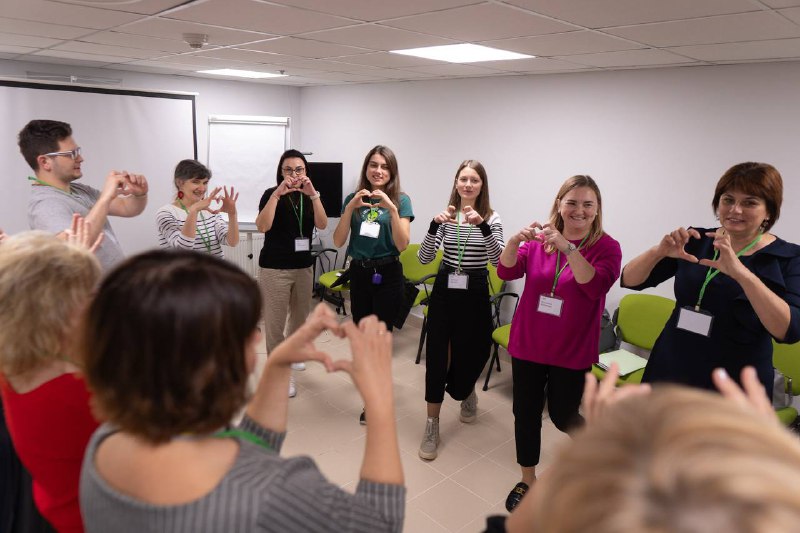
Forum theater workshop by Theater for Change. Forum theater is one of the techniques of the Theater of the Oppressed). Photo: Theater for Change
At its core, this approach was initially developed for people facing oppression, discrimination, and rights violations. Yana Salakhova practices the method in her work and believes that Theater of the Oppressed is still profoundly relevant today. Oppression happens when one group lives better at the expense of another — and there isn't a single society in the world with absolute equality and justice. Oppression, however, does not mean helplessness.
"An oppressed person is not a victim," says the Theater for Change leader. "In the Theater of the Oppressed, an oppressed person recognizes what's happening to them and actively seeks ways to change it."
The most popular technique in the Theater of the Oppressed is forum theater. In this format, participants create a performance depicting a specific social issue. Unlike traditional theater, where the audience simply watches, they become part of the action. Viewers analyze the situation, step in to support the main character, and suggest alternative ways to change the outcome.
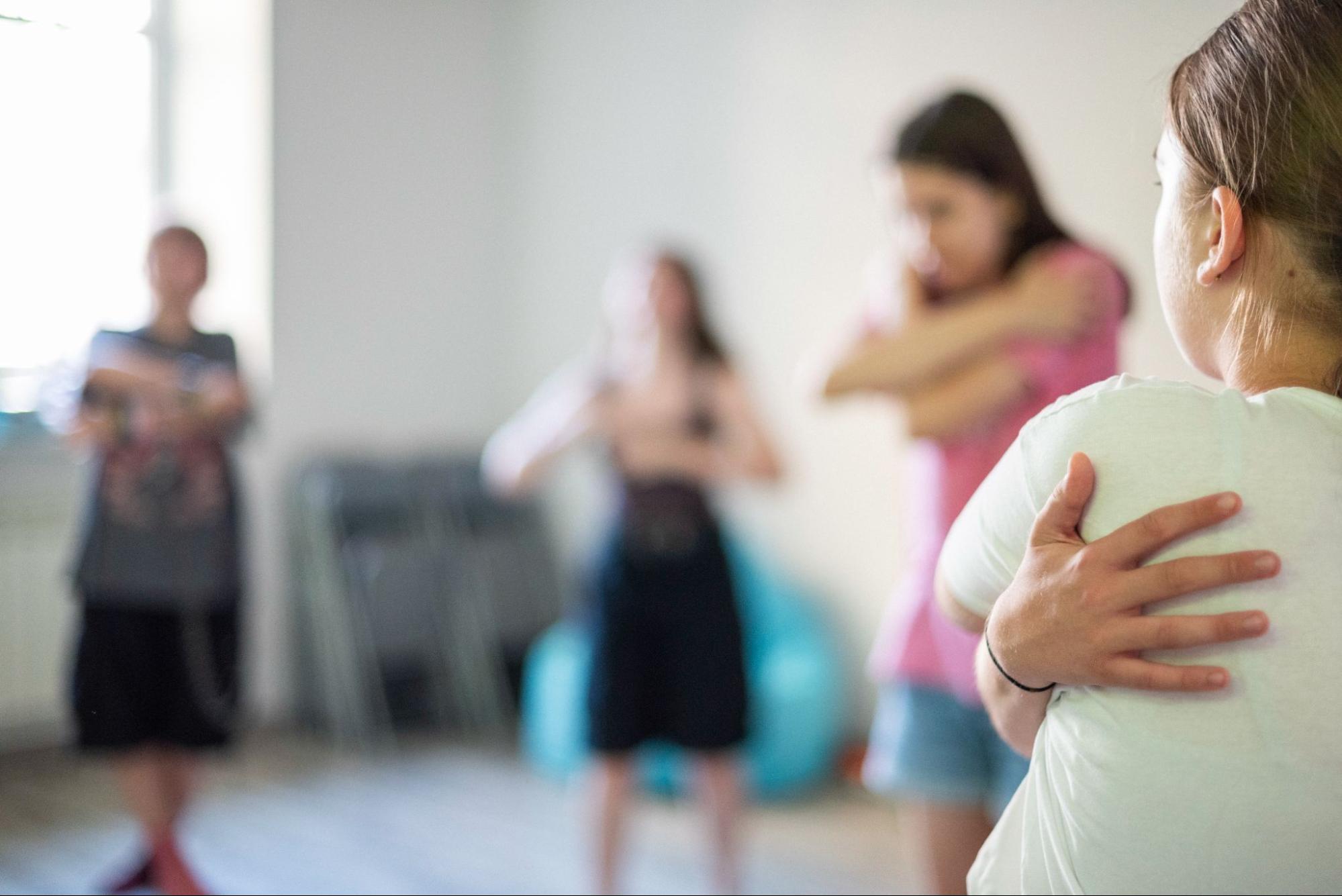
Forum theater workshop by Theater for Change. Photo: Theater for Change
According to Salakhova, forum theater speaks to a person's civic identity. Through theater, people see a real problem, share their thoughts, and work together to find solutions. It's not just about watching a play and giving advice — it's about stepping into someone else's shoes, experiencing their struggles firsthand, and working together to find a way forward. This is a powerful act of solidarity, she says.
How does it work?
You can also host a forum theater performance in your community to promote social change. Theater for Change, which runs workshops in Ukraine for nonprofits, activists, and local groups, shared with Rubryka how to do this.
What do you need to organize a workshop?
A forum theater workshop lasts two to three days. If you're the one organizing it, here's what you'll need to take care of:
- Gather a group of participants (ideally 12–15 people).
- Choose a topic you want to analyze.
- Cover costs, including meals, travel, accommodation, and payment for the jokers (facilitators trained in the Theater of the Oppressed method who lead the workshop). These costs vary depending on the workshop.
- Handle logistics, like securing a venue, registering participants, and inviting an audience for the final performance.
In Ukraine, Theater for Change can sometimes help cover workshop costs, especially when the request comes from people facing discrimination or human rights violations, representing a vulnerable social group, or highlighting an issue that needs public attention. You may have similar nonprofits in your area that can support your workshop.
Not every workshop starts with a set topic. Sometimes, participants discover the issue they want to discuss during the workshop.
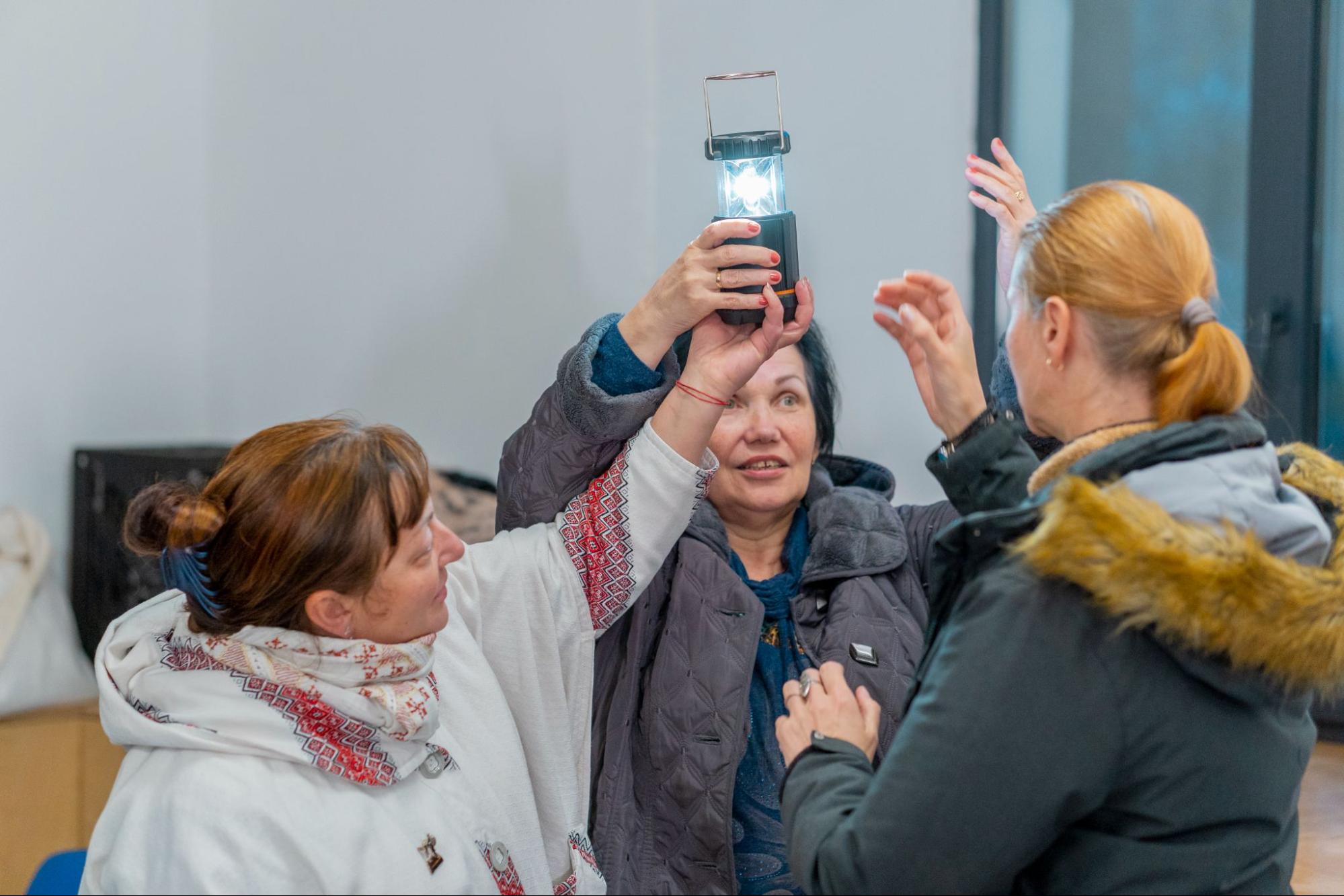
Forum theater workshop by Theater for Change. Photo: Theater for Change
What issues do these workshops address?
Forum theater probes into real-life problems that communities want to solve. In 2023, Theater for Change used its workshops to spark public discussions on 17 socio-political issues, including the integration of internally displaced people (IDPs), domestic violence, the role of women in a country at war, supported living for people with disabilities, and much more.
What happens during a workshop?
It all starts with games and exercises led by the Joker. These help build trust and create a safe space. No one is forced to participate — if someone isn't comfortable with an activity, they can simply sit it out.
Next, participants learn the basics of acting, become more aware of their bodies, and reflect on their experiences. This helps uncover the issues they want to bring to the stage.
Then, the group splits into different roles: some write the script, others work on props, and some take on acting roles. At this stage, the Joker steps in as a director, ensuring the performance follows the forum theater format, where the audience is invited to intervene and change the course of events.
When everything is ready, the forum theater performance is staged for an audience, but the real magic happens afterward. Following the performance, the Joker becomes a moderator, leading a discussion between the audience and the actors. Viewers don't just watch — they step in, suggest different actions, and explore solutions that could have changed the story's outcome.
"We don't always come up with practical solutions. But Boal [the founder of the Theater of the Oppressed] believed that the most valuable part of this performance is the dialogue itself," says Yana Salakhova. "In my experience, I've never seen a more open and honest conversation than what happens at a forum theater performance. For a public event — where strangers gather in one space — the depth of discussion and the raw honesty in addressing these issues is truly remarkable."
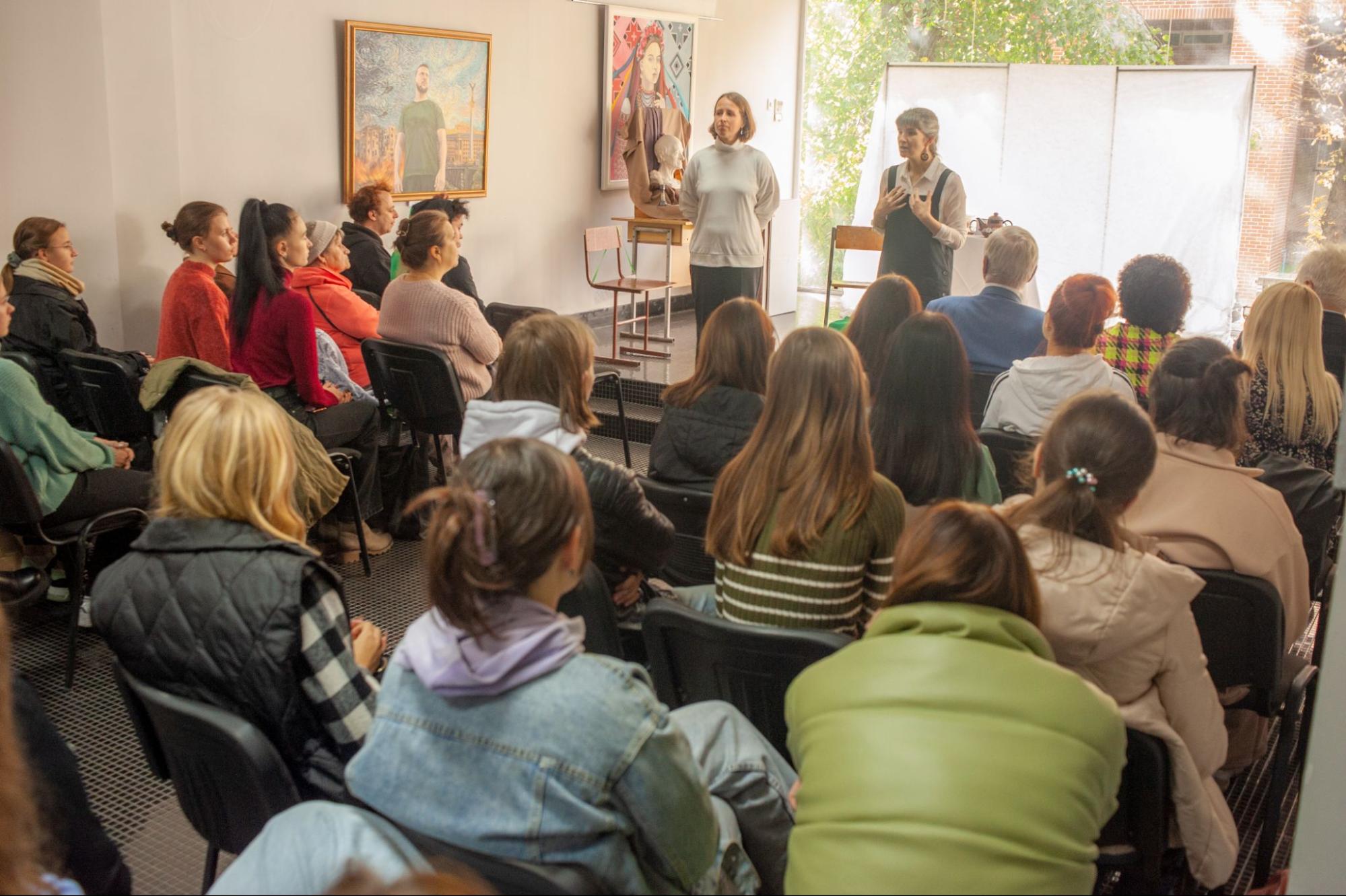
Forum theater performance. Photo: Theater for Change
Does this really work?
According to the head of Theater for Change, the most valuable thing about forum theater performances is the dialogue they spark within communities. Sometimes, that dialogue leads to real change — shifting someone's perspective or pushing local officials to take action.
Take last year, for example. Theater for Change partnered with the charity Stabilization Support Services to investigate how displaced mothers with children were integrating into new communities. They held two workshops, each bringing together women from six to seven regions of Ukraine. The insights from these sessions became the foundation for forum theater performances, which were staged in those same regions. The goal? To open up conversations between displaced people, locals, volunteers, and authorities.
One of these performances took place in Cherkasy, where Yana Salakhova was moderating. Among the audience was a local council member who supported volunteer initiatives but believed displaced people who weren't actively job-hunting were unwilling to work and live off others.
"When she started talking with our actors, she realized that some people fleeing war zones were burned out. They needed time to put themselves back together before they could even think about starting over," says Salakhova. "The officials in the audience saw that they hadn't accounted for these realities. They recognized they need to consider the psychological state of displaced people and rethink how they provide support. By the end of it, they were genuinely grateful for the new perspective and even said they wanted to revise their assistance programs."
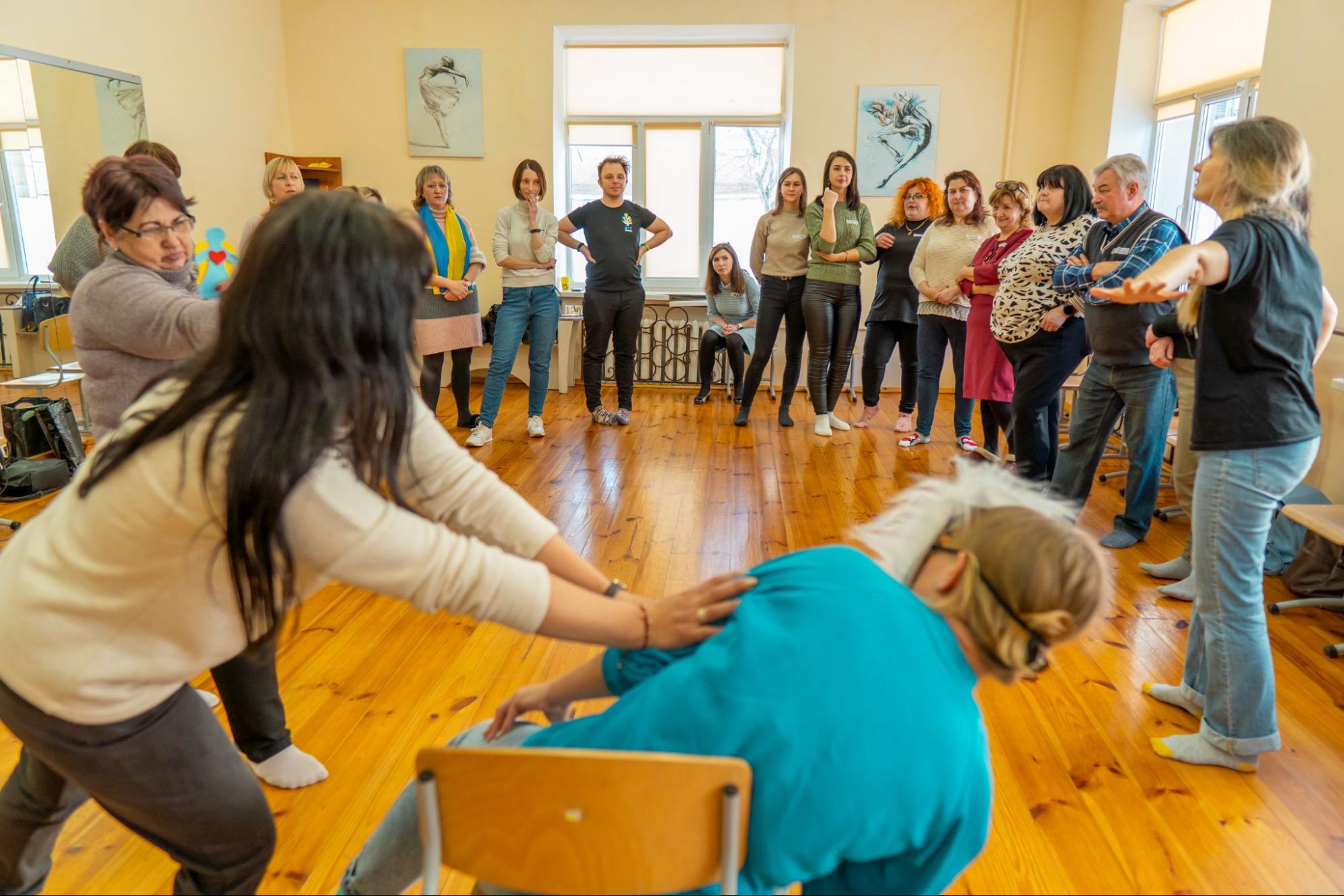
Forum theater workshop by Theater for Change. Photo: Theater for Change
In Kolomyia, after watching a forum theater performance, a local official realized that securing better housing for displaced people would encourage them to stay in the city, which would help fill job vacancies and support the local economy. In Zhytomyr, a woman in the audience stood up after the performance. She apologized — not just for herself but on behalf of other locals — acknowledging the prejudice that many displaced people had faced. In Bila Tserkva, another audience member admitted that the performance completely changed her negative attitude toward displaced people. Seeing their struggles firsthand made her understand their situation in a way she never had before.
Beyond these particular moments, Stabilization Support Services also established IDP councils in several cities. These councils used ideas and proposals from forum theater discussions to push for real improvements in the treatment of displaced people.
Salakhova recalls a workshop she led in Brovary, near Kyiv. During the session, participants came up with proposals to improve their city's public spaces. By the end, they had drafted a letter outlining their suggestions and sent it to the local government.
"A year later, one of the women from that workshop reached out to me. She told me that some proposals had already been implemented and were making a difference. So yes, real change happened," Salakhova says.
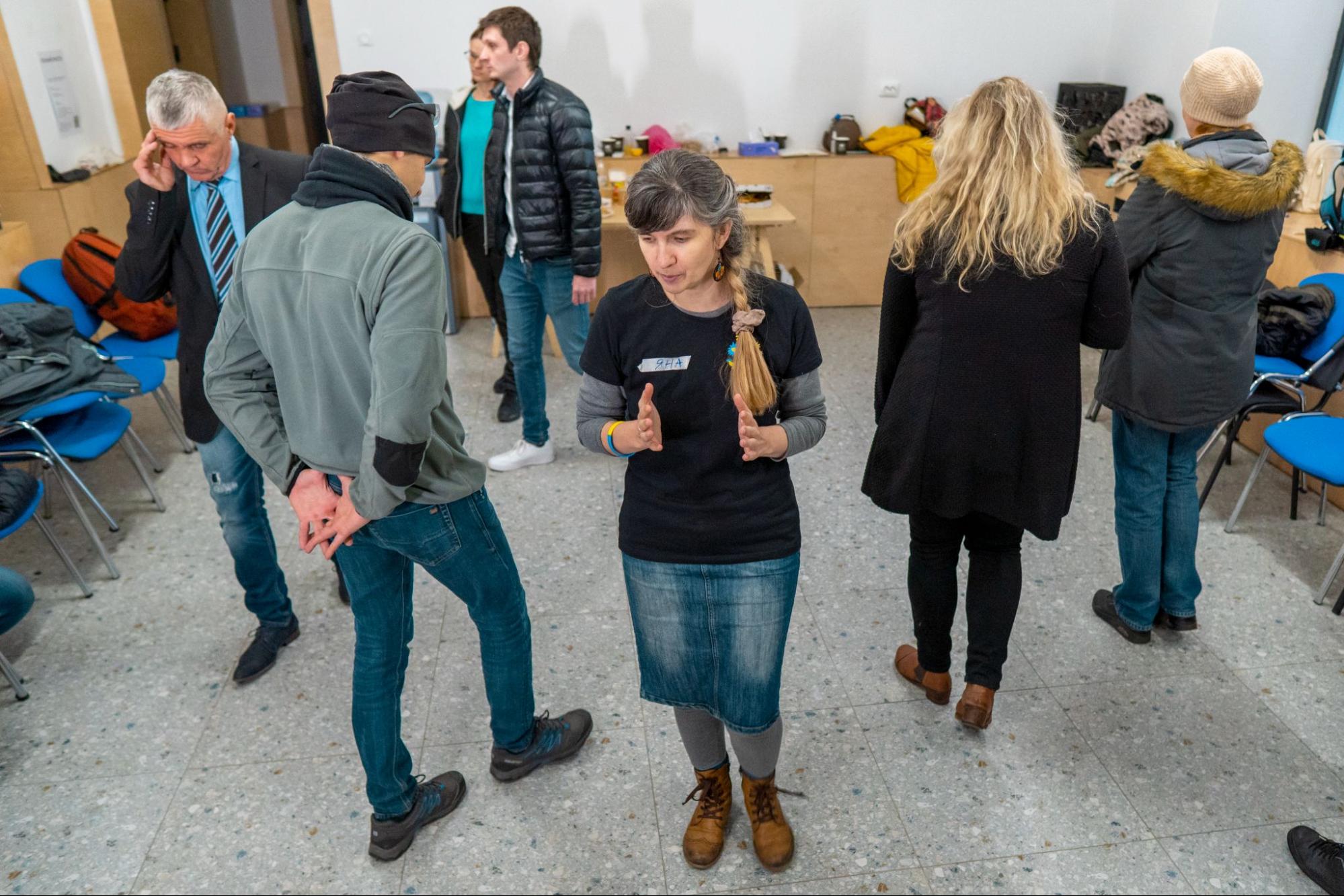
Forum theater workshop by Theater for Change. Photo: Theater for Change
According to the Theater for Change leader, discussions at forum theater performances should ideally be followed up with advocacy efforts—projects that help turn these conversations into lasting change. While Theater of Change sometimes tracks the impact of its work (as it did in Brovary), its primary mission is to give marginalized communities a voice.
"Theater of the Oppressed is about rehearsing for real life. People often tell us that the scenarios they acted out during a performance helped them navigate similar situations later. And that's the real goal — not just what happens on stage, but what people take away from it. Whether it's standing up for their rights, saying 'no; when needed, or setting personal boundaries, forum theater empowers people to act differently in their lives," says Salakhova.
Even more helpful solutions!
Beyond community workshops, Theater for Change also runs Schools of the Theater of the Oppressed — a program launched in 2021 by a network of Ukrainian Jokers. These schools provide in-depth training on the philosophy of the Theater of the Oppressed and teach participants how to conduct forum theater workshops themselves.
So far, the program has had three graduating classes with around 20 trained facilitators. Salakhova's long-term goal is to have at least one trained facilitator in every region of Ukraine so that communities across the country can organize their forum theater workshops led by someone familiar with their local context and challenges.
Improving Media Resilience in Ukraine Project. Implemented by Fondation Hirondelle (Switzerland) and IRMI, Institute for Regional Media and Information (Ukraine). Funded by Swiss Solidarity.


